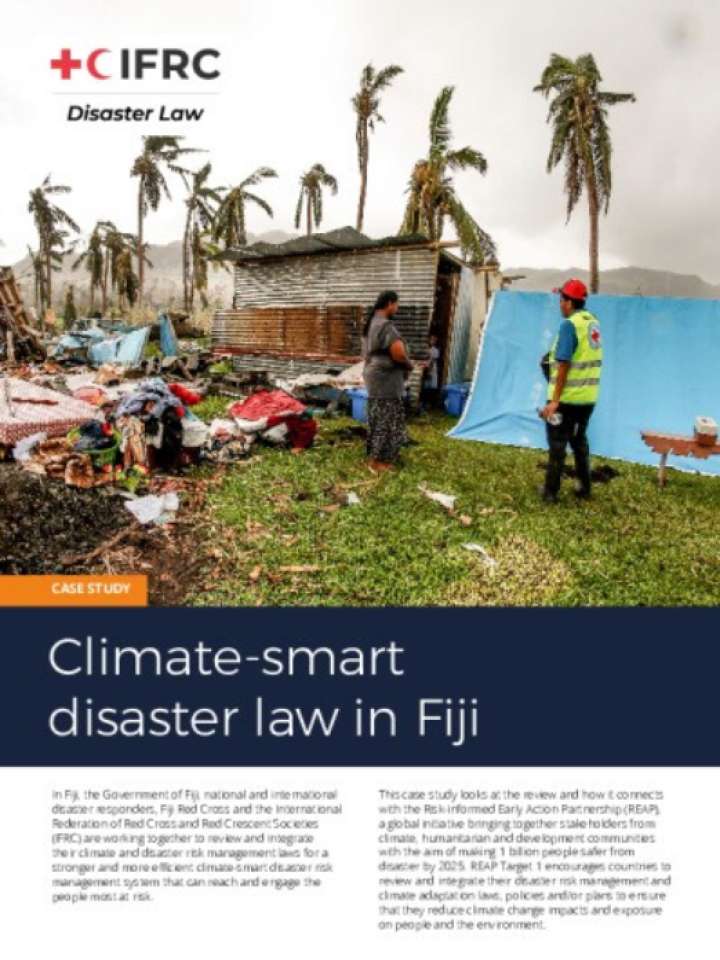Case Study: Climate-smart disaster law in Fiji
This case study looks at the review conducted by the Government of Fiji, national and international disaster responders, Fiji Red Cross and the International Federation of Red Cross and Red Crescent Societies (IFRC). It aims to connect the review with the Risk-informed Early Action Partnership (REAP), a global initiative bringing together stakeholders from climate, humanitarian and development communities with the aim of making 1 billion people safer from disaster by 2025.
This study finds that the collaborative approach of the review in Fiji has brought together stakeholders from across government, civil society and the national and international humanitarian sector. Fiji's National Disaster Management Office said they found the review to be an advocacy process for what they do, inducting and reminding sectors and new public servants on their roles and responsibilities and the roles and responsibilities of other sectors in a disaster setting. The development of the new Climate Change Bill in Fiji has involved extensive participation and stakeholder engagement, providing opportunities for people’s voices to be included in disaster law decision–making, both collectively and individually.
Explore further
